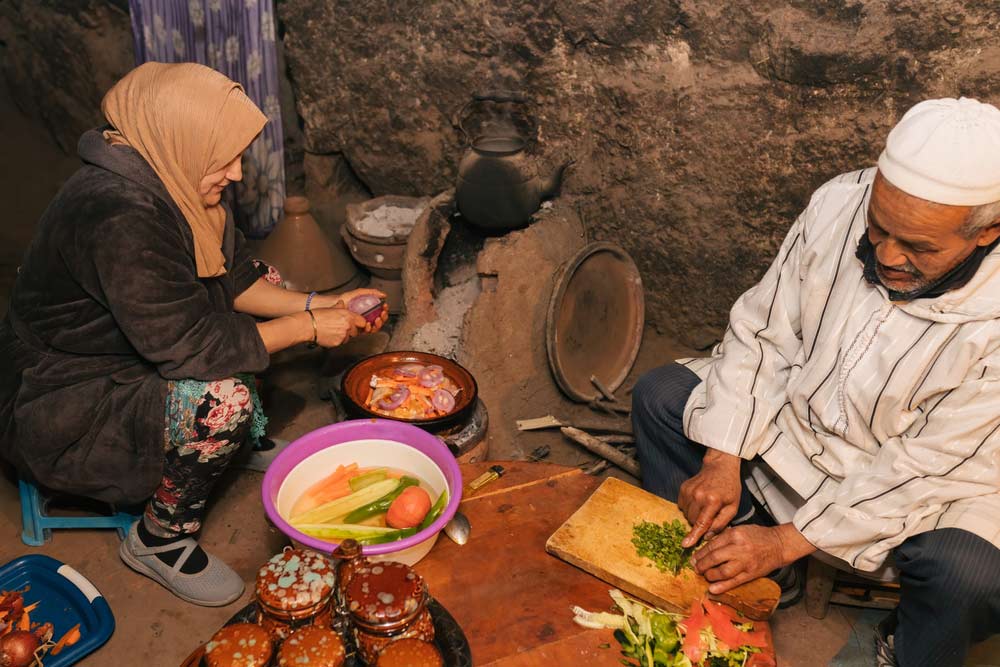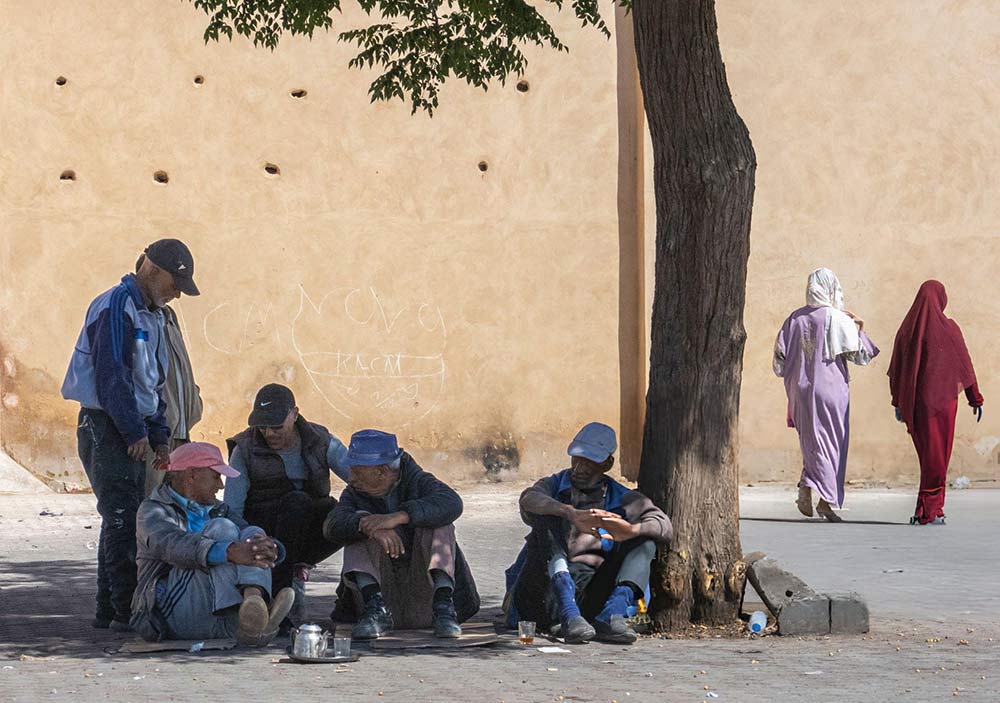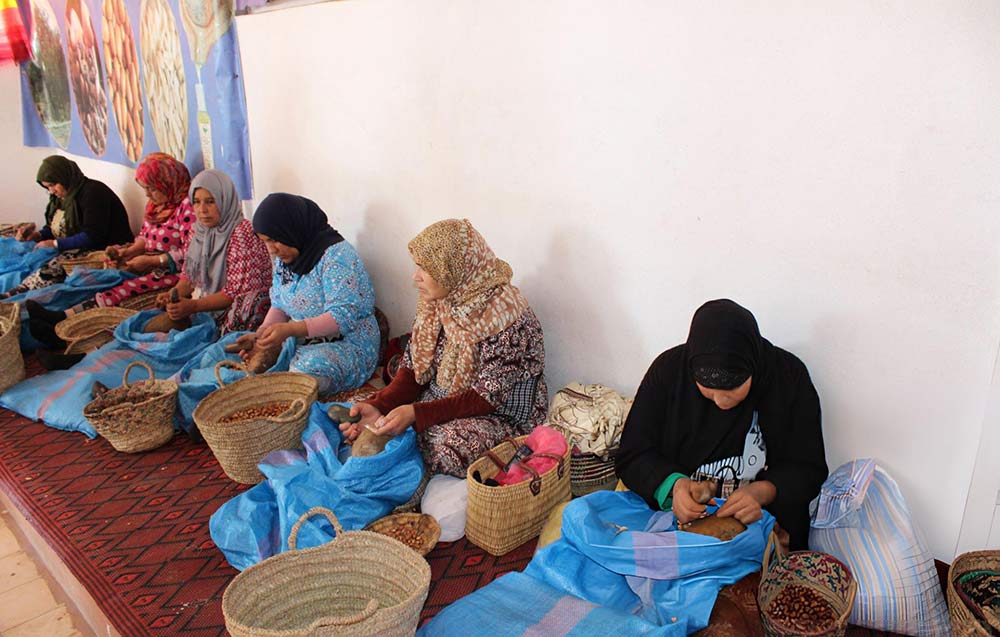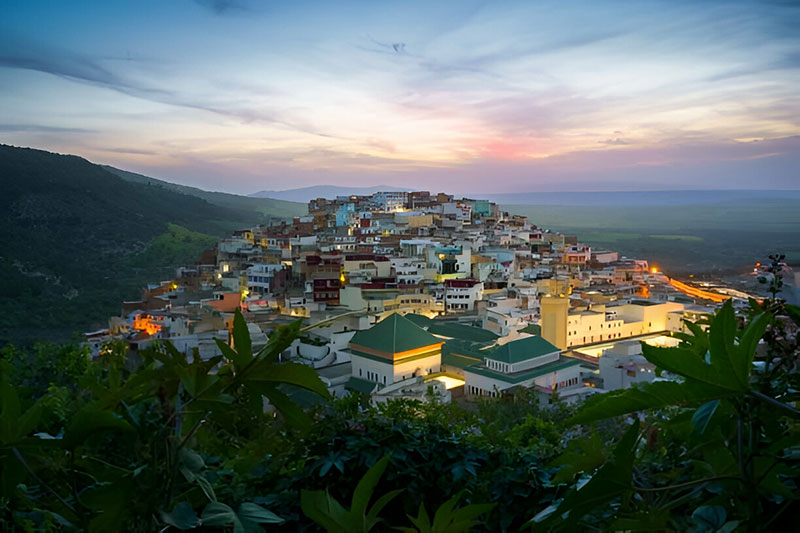Morocco is a fascinating country with a rich culture. Understanding the Moroccan way of life can help you appreciate this unique place. In this article, we will explore family life, social activities, and daily routines in Morocco.
Families in Morocco are close-knit. They often live together and support one another. Social activities are a big part of Moroccan culture too. People love to gather, celebrate, and spend time with friends and neighbors. Daily routines in Morocco include many interesting customs and traditions.
Family Life in Morocco

Family life is very important in Morocco. Most families are big and include not just parents and children, but also grandparents, aunts, uncles, and cousins. Everyone lives close by or even in the same house. This way, they can help and support each other every day.
In the morning, Moroccan families start their day early. Breakfast is often a simple meal with bread, olive oil, and tea. After breakfast, children go to school, and adults go to work. Some family members, like grandparents, stay at home to take care of the house and younger children.
Family gatherings are common and very special. They celebrate birthdays, weddings, and religious holidays with big meals and lots of laughter. Everyone brings food to share, and they eat together, telling stories and enjoying each other’s company.
The role of an extended family is very strong in Morocco. Relatives often visit each other, and there is a strong sense of belonging. Family members take care of one another, especially the elderly and the young. This makes the family bond very strong and supportive.
Social Activities in Morocco

Social activities are a big part of life in Morocco. People love to spend time with friends and neighbors. One popular social activity is visiting the local souk or market. Here, people buy fresh fruits, vegetables, spices, and other goods. It’s also a place to meet friends and catch up on the latest news.
Moroccans are known for their hospitality. When friends or family visit, they are welcomed with tea and snacks. Tea is very important in Moroccan culture. Making and serving tea is a special ritual that shows respect and friendship.
Community festivals and celebrations are common. These events are full of music, dancing, and delicious food. Everyone in the neighborhood comes together to celebrate. It’s a time for fun and togetherness.
Traditional social practices include visiting each other’s homes often. It’s polite to bring a small gift, like sweets or flowers. Moroccans also enjoy going to cafes, where they can sit and talk for hours.
Daily Routines of Moroccans

Daily routines in Morocco are influenced by tradition and religion. In the morning, families wake up early. Breakfast is usually light, and then everyone starts their day. Children go to school, and adults go to work.
Workdays are busy, but people take breaks for tea and meals. Lunchtime is often the main meal of the day. Families who can go home for lunch enjoy a big meal together. This meal includes dishes like tagine, couscous, and fresh bread.
In the evening, families gather for dinner. This is a smaller meal, but still important. After dinner, people relax, watch TV, or visit neighbors. Evenings are a time to unwind and spend time with loved ones.
Weekends are for special activities. Families might visit the countryside, go to the beach, or explore new places. Weekends are also a time for larger family gatherings and celebrations.
Broader Cultural Aspects
Moroccan culture is lively and colorful. Art, music, and dance are integral parts of life. The streets are filled with beautiful crafts and the sound of traditional music. Moroccans take pride in their heritage and express it through their vibrant cultural practices.
Parties and celebrations are frequent and joyous in Morocco. Events like weddings and birthdays are celebrated with great enthusiasm. These gatherings include music, dancing, and feasts. Special occasions bring families and communities together, creating lasting memories.
Gnaoua music is a unique part of Moroccan culture. It combines African, Berber, and Arabic musical traditions. The music is rhythmic and spiritual, often used in healing ceremonies. Gnaoua festivals attract people from all over the world, showcasing the rich musical heritage of Morocco.
Festivals are a time for celebration and community. Some of the biggest festivals are Eid al-Fitr and Eid al-Adha, which are religious holidays. During these times, families come together to pray, eat, and give to the poor. Festivals also include colorful parades and traditional performances.
Morocco has regional differences in lifestyle. In cities, life is fast-paced and busy. In the countryside, life is slower and more relaxed. Each region has its customs, foods, and traditions. Exploring different regions of Morocco reveals the diverse and rich culture of the country.
Culinary traditions are a big part of Moroccan culture. Food is flavorful and varied. Common dishes include tagine, couscous, and harira soup. Meals are often shared with family and friends. Cooking is considered an art, and meals are prepared with care and love.
Living in Morocco: Tips and Insights

The first few days in Morocco can be overwhelming with crazy traffic, food trucks everywhere, people asking where you’re from, and encountering beggars. Be mentally prepared for this. Morocco is a Muslim country but very open and welcoming to all races and religions. As a foreigner, you might be charged extra for many things, so bargaining is essential—bargain hard.
Try to live in the city or near your workplace as public transport can be unreliable with long taxi queues and crowded metros. There are two types of taxis: white ones for long distances and small colored ones for short distances. Taxis are not private, so sharing with strangers is normal. Avoid metropolitan buses as they are crowded and unsafe. Also, avoid taking rides from strangers who offer taxi services in their cars to avoid trouble with the police.
People speak Darija (Moroccan dialect) French, or both. Learning some basic words is useful as not many speak English. Finding a proper restaurant can be hard; most places are food trucks or small local spots called “snacks.” Be cautious with street food if you have a sensitive stomach. Have medical insurance and visit private doctors if needed. Public hospitals are not recommended, and medicines might be pricier than you expect.
Be prepared for time-consuming and slow paperwork processes. Patience is key. Keep your belongings close and avoid keeping valuables in your back pockets. Don’t be on your phone while walking to prevent theft. Most shops close from 2 pm to 4 or 5 pm on weekdays and from 1 pm to 4 or 5 pm on Fridays due to prayers. Local markets are cheaper than supermarkets and are open every day.
Don’t be scared if people are nice to you. It’s common for Moroccans to be friendly to foreigners. Engage in conversations—it’s typical. If invited to a meal at a local family’s home, accept the invitation. You’ll enjoy tasty food, and your hosts will be pleased if you eat heartily. You might get stopped by the police without reason and asked for money. If you do give money, don’t be generous. Some cities are safer than others. Rabat and tourist cities are generally safer but avoid walking on the beach at night outside of summer.
Morocco is cheaper than Europe but slightly more expensive than foreigners might expect. Be patient, especially during your first few days. It can be challenging at first, but you’ll likely end up liking the country.
Conclusion
Living in Morocco offers a unique and enriching experience filled with vibrant culture, warm hospitality, and diverse daily activities. While the initial adjustment period may be challenging due to different customs, crowded transport, and the need for patience in daily dealings, embracing these aspects can lead to a deeper appreciation of Moroccan life.
From close-knit family bonds and lively social gatherings to the rhythm of daily routines, Morocco’s charm lies in its authenticity and warmth. By understanding and adapting to these nuances, you will find yourself immersed in a culture that is both welcoming and fascinating.
Remember to stay patient, be open to new experiences, and enjoy the journey of discovering all that Morocco has to offer.
